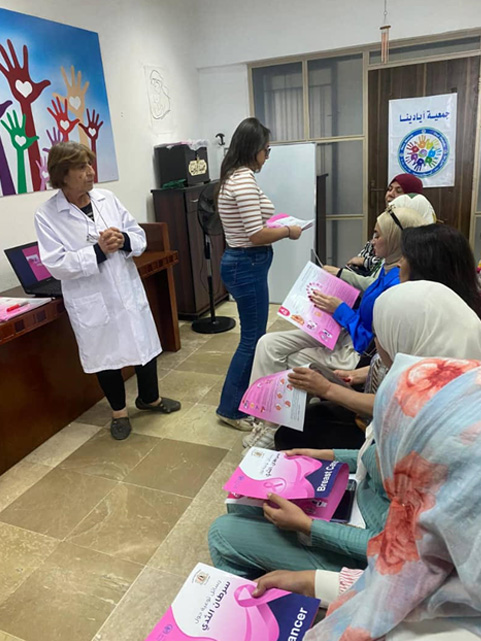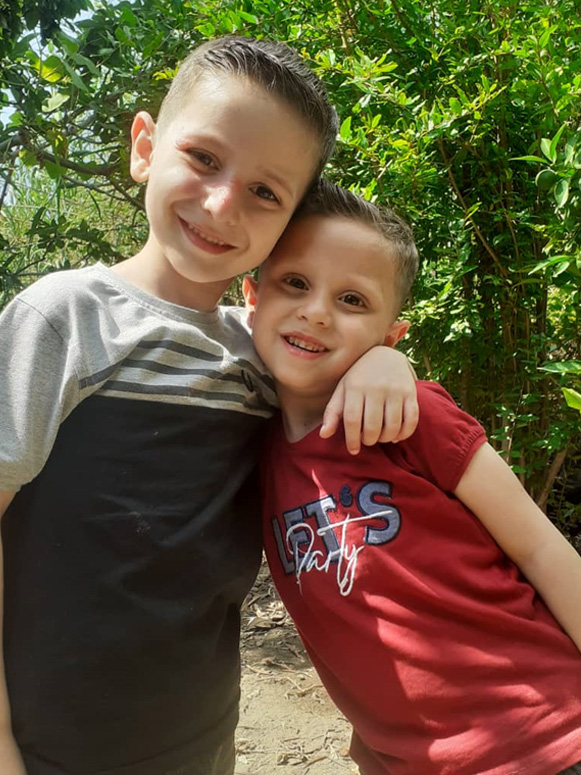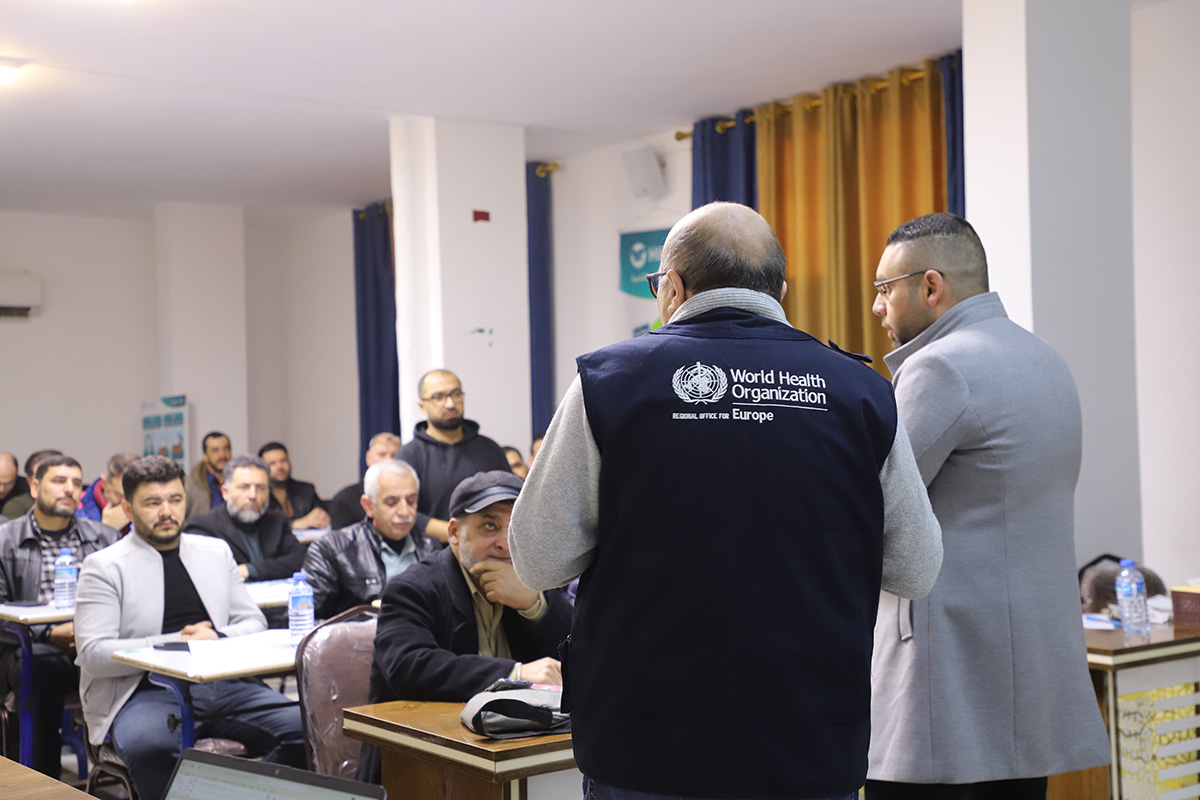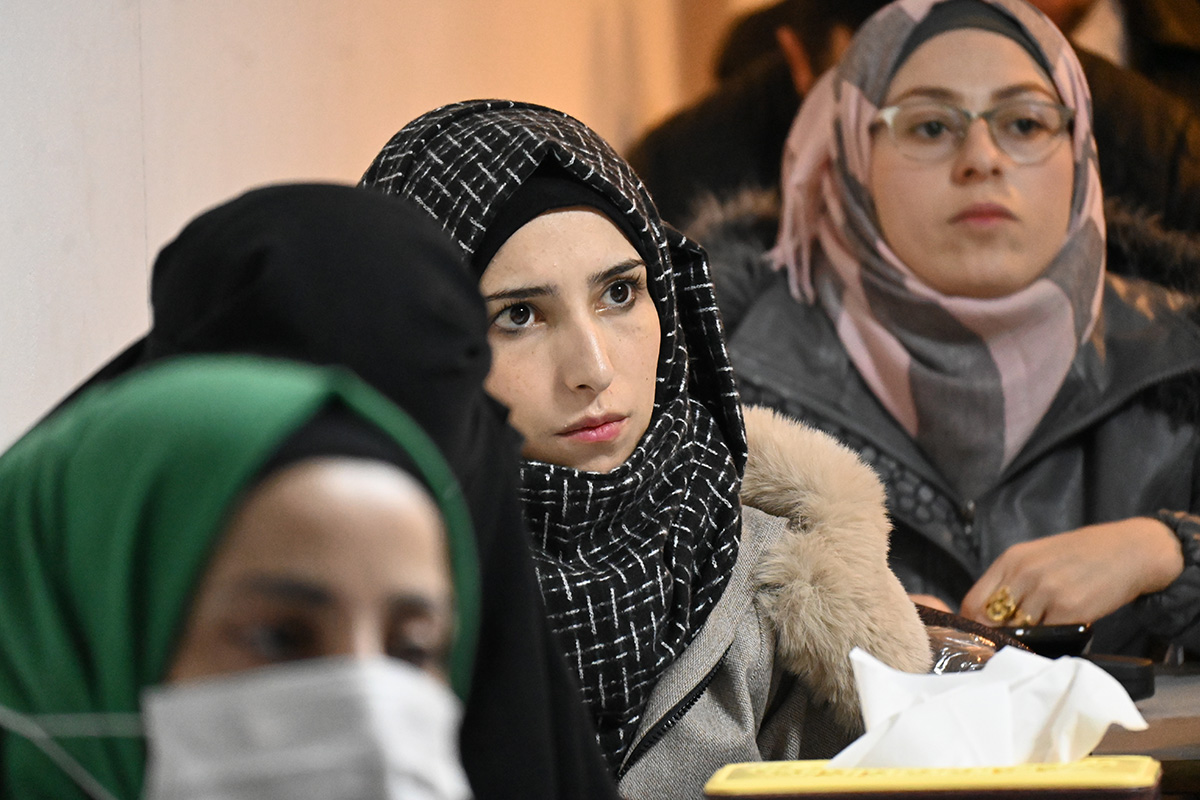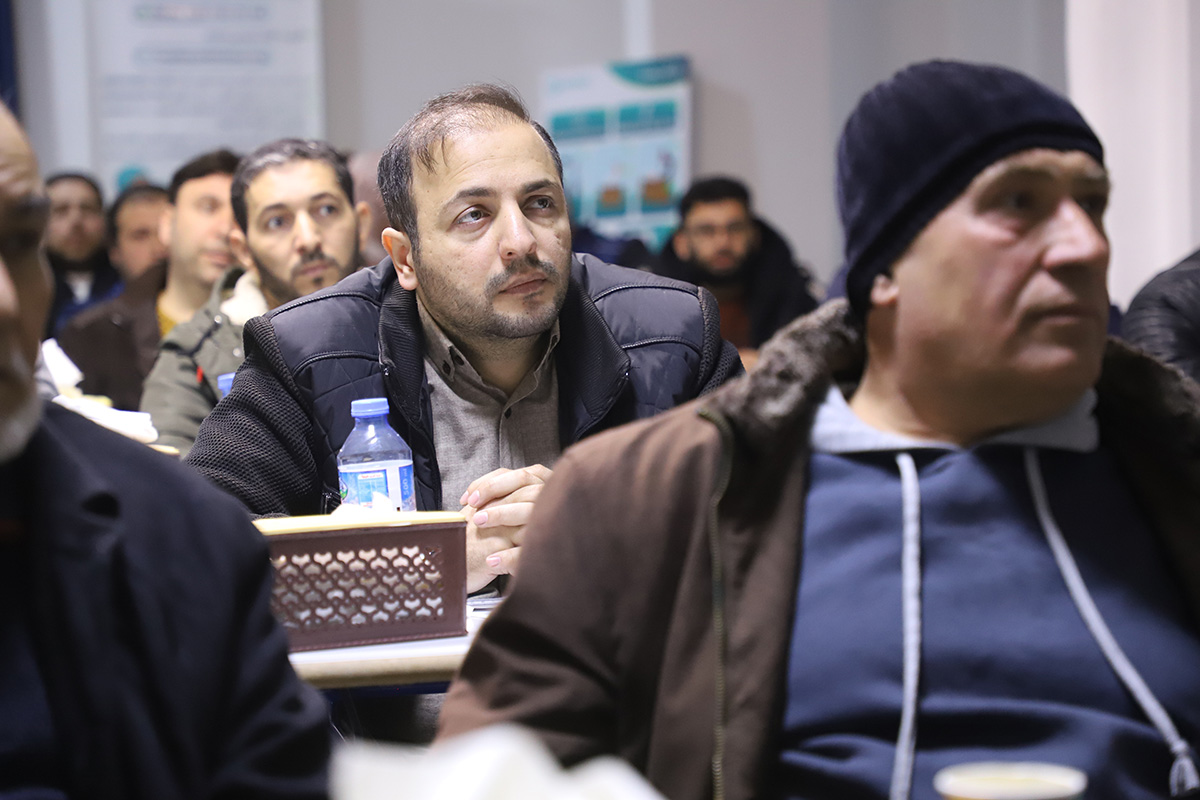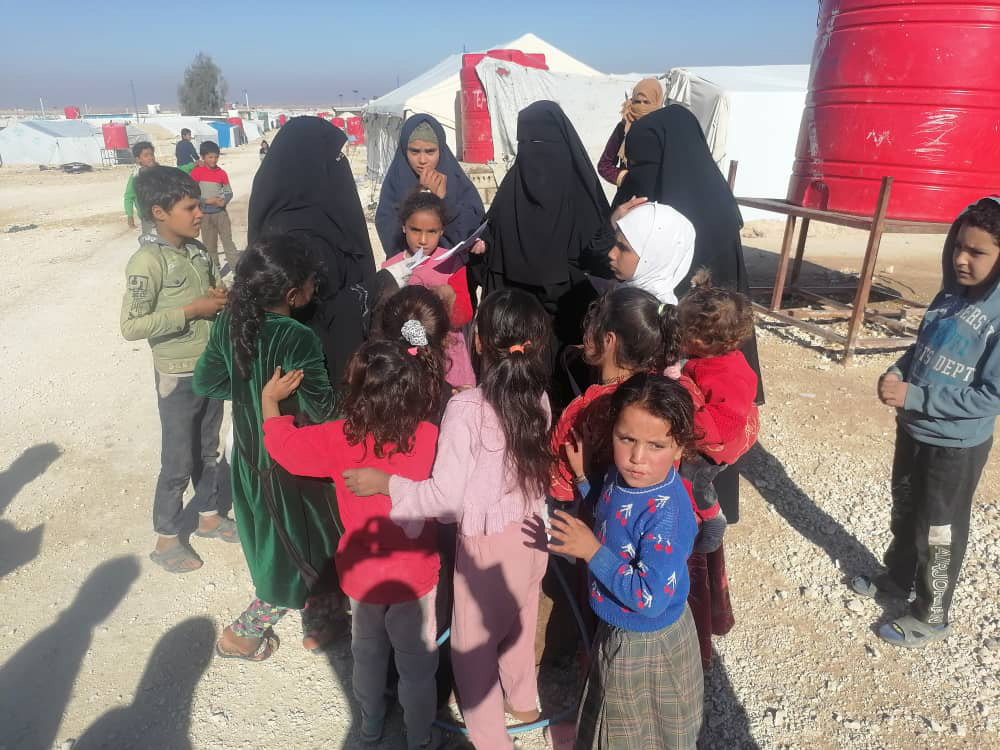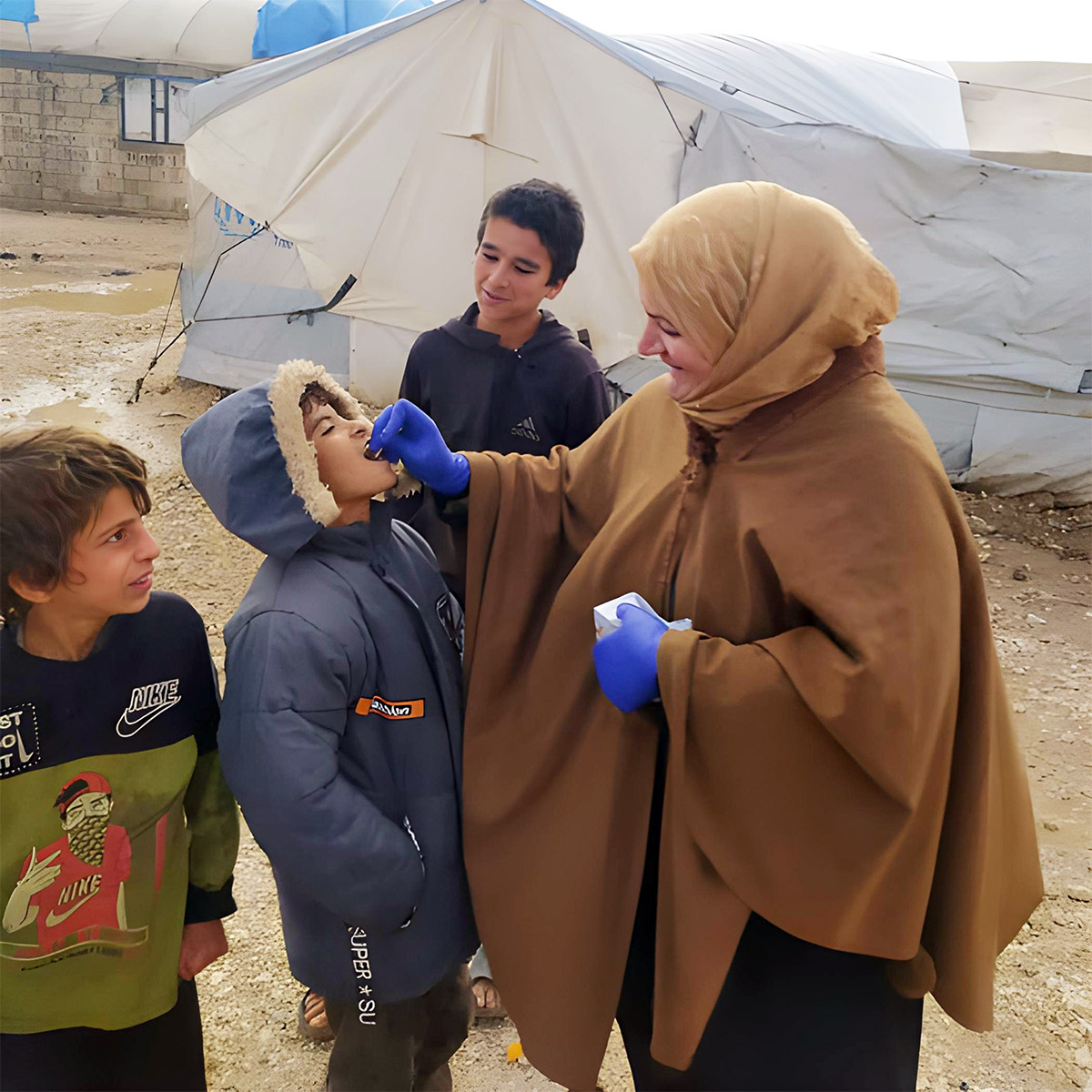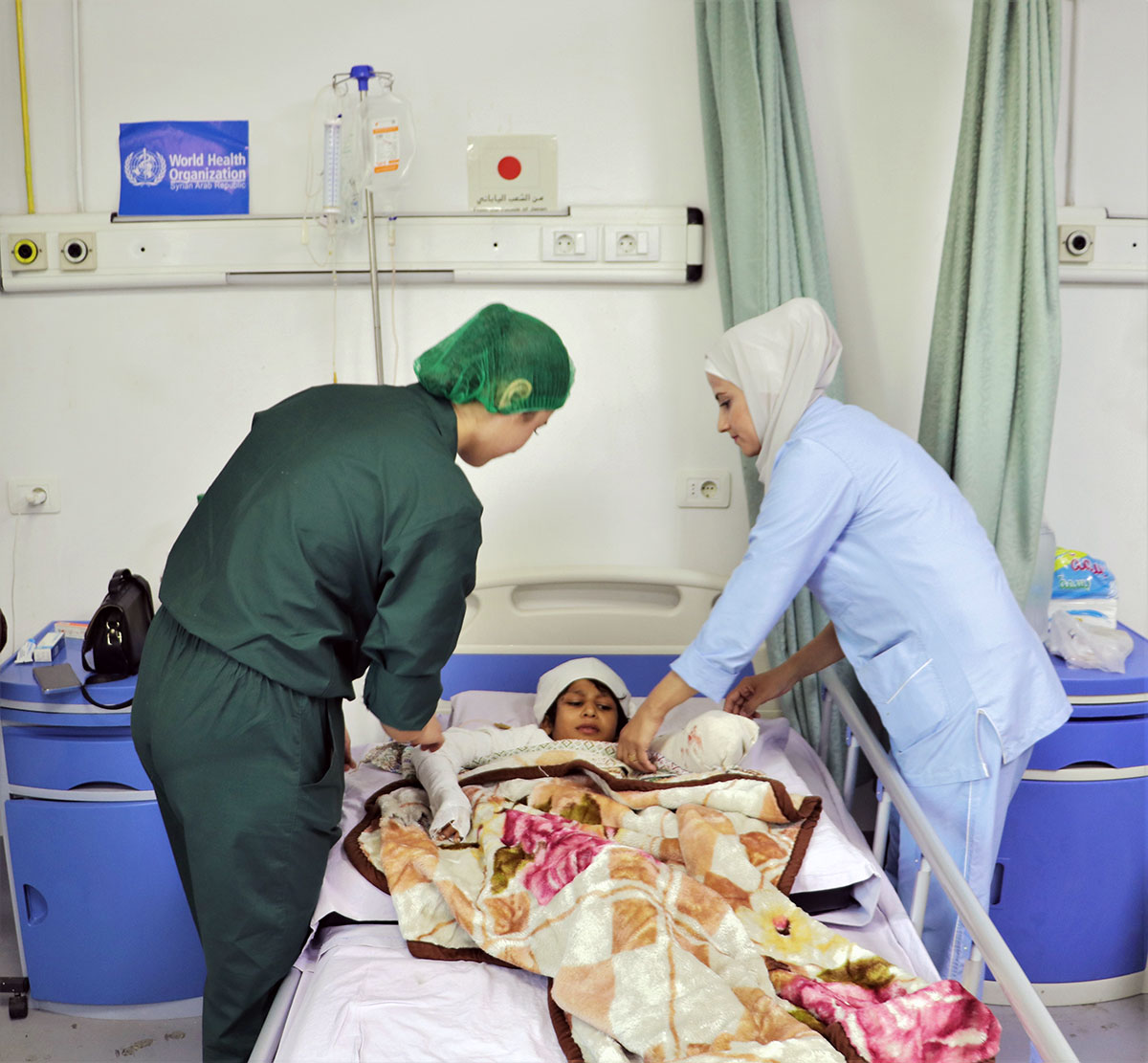 Nermin receiving medical treatment at the Burn Unit in Al Razi Hospital20 February 2025, Syrian Arab Republic – Nermeen, a lively 9-year-old girl from Aleppo, was playing in her home one morning when she touched a faulty electrical socket and received a powerful shock that went through her right hand and out her left. The shock caused severe damage to her arm and put her life at risk.
Nermin receiving medical treatment at the Burn Unit in Al Razi Hospital20 February 2025, Syrian Arab Republic – Nermeen, a lively 9-year-old girl from Aleppo, was playing in her home one morning when she touched a faulty electrical socket and received a powerful shock that went through her right hand and out her left. The shock caused severe damage to her arm and put her life at risk.
In panic, Nermeen’s parents rushed her to the emergency department of Al-Razi Hospital where the medical team began to treat her. The damage was serious and without immediate action her arm might have needed amputating.
Nermeen was admitted to the hospital’s Burns Unit for specialized care. Her parents held onto hope, trusting the doctors to save her. As they do with all cases admitted to the Burns Unit, Dr Alaa Al-Din Allou and his team worked tirelessly to treat Nermeen’s burn injury and restore her to health. The Burns Unit uses advanced equipment, the acquisition and installation of which was made possible by the generous support of the People of Japan. But it wasn’t just the technology that helped. Nermeen received the doctors' dedication and care, with her parents by her side.
Thanks to the skill, compassion and resources at Al-Razi Hospital, Nermeen’s arm was saved.
“I can’t think what would have happened to my daughter if this hospital was not in service. They gave my daughter a second chance at life. I will forever be grateful,” said Nermeen’s mother.
Nermeen’s story is a testament to the vital work done at Al-Razi Hospital, the only specialized treatment center for burns for nearly 4 million people living in Aleppo Governorate and surrounding areas. It covers a vast region that includes Aleppo, Idlib, and other conflict-affected regions.
Overwhelmed by years of conflict and the aftermath of the 2023 earthquake, the Burns Unit underwent extensive rehabilitation in 2022. In the past 2 years, the Unit has admitted 697 patients and provided emergency lifesaving care to over 5876 individuals.
Acting WHO Representative to Syria Christina Bethke emphasized the importance of Japan’s contributions to the hospital: “Without the support of the People of Japan we would not have been able to help Nermeen and so many others in need of specialized burns care. Their support has truly been a lifeline for the health of Syrians during the years of the crisis, enabling us to provide critical care when it is most needed.”
WHO is deeply grateful to the People of Japan who have been steadfast supporters of Syria’s health care system, ensuring that, even amidst conflict people can access the care they need.





